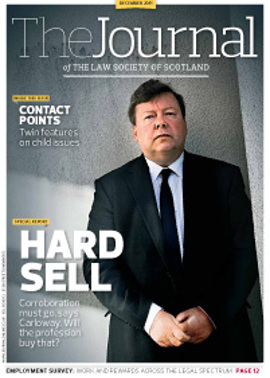Beware: earn-outs

Earn-outs are well established mechanisms commonly used in the sale of a business, to calculate a proportion of the price by reference to the performance of the target company over a period of time after the sale. In difficult financial times, such mechanisms are becoming more common, but are inherently more risky to sellers accepting their price on a deferred basis linked to performance. As against that, many deals would simply not otherwise be possible.
Negotiating any earn-out mechanism is fraught with difficulty. At its heart are the earn-out often puts mutually incompatible desires of the buyer and seller against each other. The earn-out is usually calculated by reference to profitability of the purchased business for a period (usually at least two or three years) post-completion. Often the buyer will have identified the business as a suitable target not only because of perceived synergies, but because it imagines it will be able to introduce efficiencies and cost savings that will benefit the business longer term. However, these savings are likely to impact on the target’s ability to generate the profits required to meet the earn-out criteria. There is therefore a difficult commercial balance to be struck, and reflected in the drafting.
There are many key risk areas in drafting these provisions and they will always have to be very specifically tailored to the deal in question. One contentious area will be the definition and calculation of “profit”. The standard position is that earn-out profit should be calculated employing the accounting practices and principles of the target company immediately prior to completion. However, there will almost always be agreed deviations. For example, are there bad debts to be written off; should “extraordinary” items (in accounting terms) be excluded or discounted; how book value of assets is to be dealt with; and should synergistic benefits to the target company following acquisition also be discounted (e.g. cheaper borrowing, increased purchasing power, lower costs)?
Also contentious will be the “seller protections”: terms specifically inserted to prevent the buyer from taking steps aimed at artificially reducing the earn-out profits. These usually include general “good faith” obligations that profits will not be intentionally distorted, but also more specific protections such as adding back of group management charges or other fees, restrictions against diverting business to other parts of the buyer’s group, undertakings that the target business is continued in its ordinary course without material change, and obligations to ensure that sufficient resource is provided to ensure earn-out targets are possible.
These protections can plainly be very unspecific in nature, and as a result will not only be difficult to enforce, but will also be resisted by the buyer’s advisers. Therefore, it is imperative when advising sellers to consider very carefully the specific range of items to be included. Can the buyer relocate the business? Should there be an obligation to secure a certain customer or order from the buyer’s group? Should the buyer be obligated to provide an agreed line of finance? Generally speaking, the more specific the protection, the more likely there will be a remedy available to the seller in the event of breach. It should also be considered whether parties can agree a range of veto rights in relation to specific pre-agreed matters, such as capital expenditure, accounting policies, management team etc.
Perhaps the last major area to consider regarding earn-outs is what is to happen should the earn-out period be interrupted by the sellers leaving the business, or the sale of either the buyer’s or the target business. In the first instance consideration has to be given to the circumstances of the sellers’ departure. Parties often agree one set of circumstances that result in a fairly neutral treatment of the seller (generally known as “good leaver” provisions), and another that are, shall we say, less neutral (“bad leaver” provisions). In the event of a further sale, again there is usually a range of pre-agreed options, ranging from the sellers having the right to buy back the business, to the sale resulting in a trigger for an earn-out payment.
In this issue
- Involving the named person
- Private investigators - mitigating the risks
- Human inventions
- Smoother passage
- Rough law of the street
- Council profile
- Opinion
- Book reviews
- President's column
- Mapping in the Land Register
- Alien concept
- Size does matter
- Case proved?
- Reading for pleasure
- Relocation revisited
- Where Parliament fears to tread...
- Cadder's growing family
- Landlord splits
- Five-year-old experts
- Common sense to the fore
- Beware: earn-outs
- Steering with one hand
- Scottish Solicitors' Discipline Tribunal
- Missives in motion
- Constitution on track
- From the Brussels office
- Law reform update
- Ask Ash
- Outside the box






